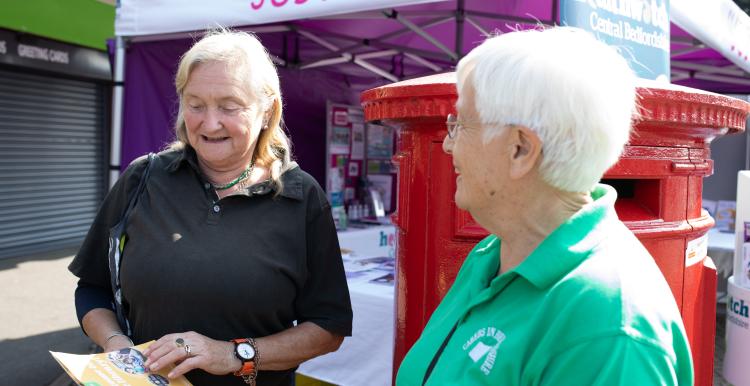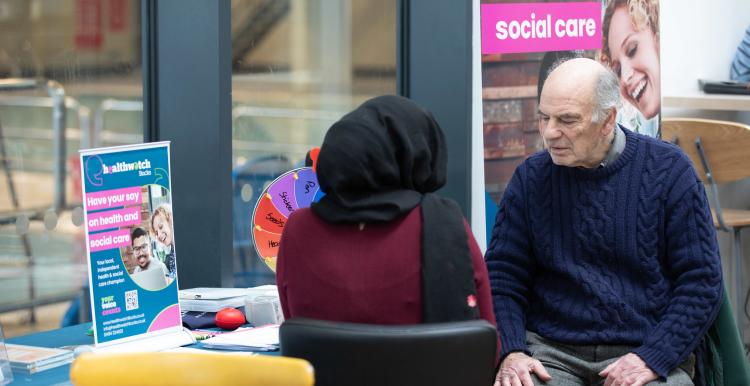What does this mean for support for local Healthwatch from Healthwatch England?
With key details of the proposed changes still to be determined, organisations delivering Healthwatch are operating in a challenging and uncertain environment. In this context, Healthwatch England’s support will need to be tailored to the specific circumstances of each local Healthwatch.
Issues such as contracts, staffing and volunteer management, finance and risk, governance, stakeholder relationships, and demonstrating impact and value may all come into even sharper focus during this transition period—whose length remains unknown.
Your regional manager is your first point of contact for discussing any challenges your Healthwatch may be facing. While we cannot offer advice outside our statutory remit, we can help you think through your options, signpost to relevant support, or connect you with others in the network who have faced similar situations and can share their experience.
Policy
Healthwatch will continue to need a clear understanding of health and care policy developments. Healthwatch England will provide regular updates and briefings to help local Healthwatch interpret what these changes mean for your work.
Research and data sharing
We will continue to support Healthwatch in planning and delivering research through our Research Help Desk and other support.
We will also continue to collect and analyse data from across the network and use this insight to produce briefings on emerging issues and trends, so please continue to share your data with us as normal.
Recognising the pressures many Healthwatch face - such as staff turnover - we will remain sensitive to local capacity and continue to provide inductions and ongoing support for new staff with responsibilities for sharing data with Healthwatch England.
Learning and development
Maintaining staff skills and confidence is essential during this period of uncertainty.
We will continue to offer core skills training, adjusting based on demand, including content relevant to those considering career development.
We will also analyse the results of a short learning needs survey, which we’ll be sending to local Healthwatch shortly. This will help shape our future support offer, ensuring it is targeted, relevant, and includes support for staff through change.
Impact and demonstrating effectiveness
Prior to the Dash Report, we had commenced work on a platform to assist local Healthwatch to log anticipated outcomes and streamline activity to follow-up and record impact. We will make this resource available and provide support to Healthwatch wishing to use it.
We also worked with local Healthwatch on guidance on categories of impact, to help understanding and realise your full value.
The Quality Framework will continue to be available for Healthwatch to use as a tool, but we will not be updating it or proactively supporting individual Healthwatch, unless you contact for help through your regional manager.
Communication and engagement
Strong communication between Healthwatch and Healthwatch England is essential throughout the transition period. We are committed to openness, timeliness, and working in line with our values.
We will continue to:
- Share monthly updates with lead officers and chairs
- Host quarterly webinars for both lead officers and chairs
- Communicate directly when there is significant new information
- Provide a weekly newsletter with policy updates for all subscribing staff
- Keep the Healthwatch network site updated with resources and guidance
- Maintain the brand template and communication resources
- Support the Healthwatch online community on Workvivo, where you can exchange advice and insights
- Facilitate regional forums where there is demand, particularly in light of ICB or local government changes
- Provide support for crisis or urgent media communications
Digital
Many Healthwatch rely on digital systems supported by Healthwatch England. We will continue to:
- Support local Healthwatch using our website template, including syndicated content and supplier liaison. For now, we will continue to onboard those wishing to transfer to this platform
- Provide free access to SmartSurvey, in line with existing arrangements
Working between Healthwatch and the Care Quality Commission
We will continue to support the Care Quality Commission to strengthen working arrangements with local Healthwatch, including in preparations for local authority assessments.
Commissioning of local Healthwatch
Healthwatch England will continue to proactively support local authorities with commissioning Healthwatch, in line with any government guidance issued during the transition period. We encourage commissioners to get in touch to discuss any challenges they may be facing, and to explore potential solutions to avoid breaks in service or to adjust existing arrangements where needed.
Any breaks in service will be reported to the Department of Health and Social Care.
Change
Like local Healthwatch, we are also experiencing the challenges that come with uncertainty. Understandably, some colleagues will need to prioritise their careers, and we are likely to see valued team members with expertise move on, requiring us to adjust how we deliver our support to local Healthwatch.
We’re deeply grateful for the warmth, patience, and understanding shown to our staff during this period. We recognise the pressures facing all teams across the network and remain committed to providing you with the best support we can in accordance with our shared values.


